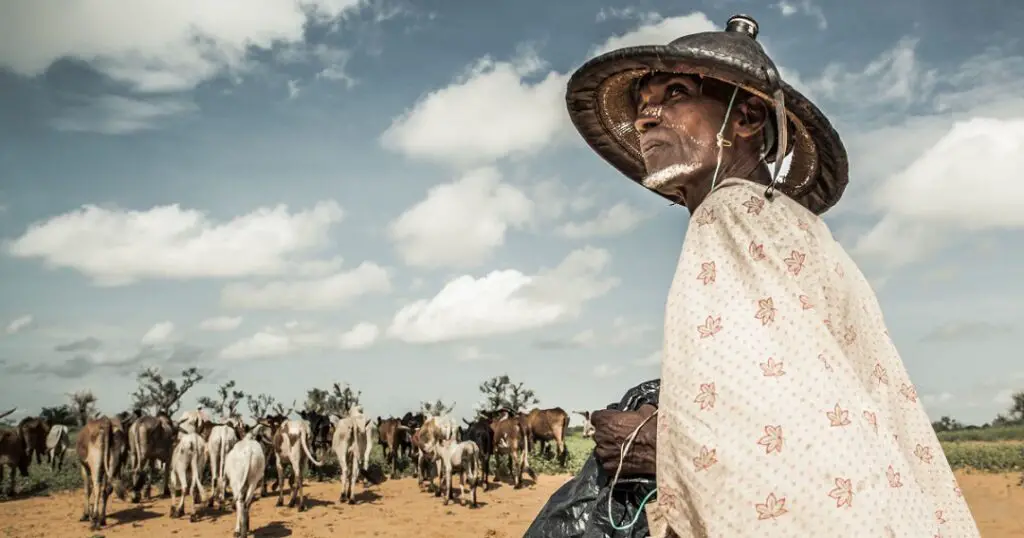- A total of 34 countries at risk of climate disaster across Africa, Asia, the Caribbean, and the Pacific have mobilised over $150 million towards 2,100 adaptation projects.
- To date, the EU has provided over $58 million for climate adaptation initiatives. EU members Sweden has raised $52 million, while Denmark and Belgium have each raised $14 million.
- Climate vulnerable countries say their needs are growing exponentially and therefore need urgent support to avert disasters.
Ministers from some of the world’s most climate vulnerable countries have called on international institutions and donors to boost access to finance to aid their adaptation to the impacts of changing weather patterns using the Local Climate Adaptive Living Facility (LoCAL).
Without funds, populations face bleak future
LoCAL, which is designed and managed by the UN Capital Development Fund, was identified as part of the climate finance “solution” at a ministerial meeting of member countries in Brussels, Belgium.
The ministers warned that without increased resources, populations in climate vulnerable countries face a bleak future marked by severe droughts. Further, rising temperatures and the prospect of conflict and insecurity have been cited as some of the worst manifestations of climate change.
The LoCAL ministerial meeting held on May 12, was attended by 16 ministers and eight high-level country representatives. The forum wrapped up a week of events for LoCAL member countries that offered solutions as well as policy and political commitments for increased action on adaptation.
“The LoCAL mechanism has brought an improvement in our country. The key result of the implementation of the LoCAL mechanism in Mali is development skills at the local level, thanks to targeted financing at the community level,” Minister of Environment, Sanitation and Sustainable Development of Mali and a LoCAL Ministerial Ambassador Koné Modibo, said.
Mali, which lies in the Sahel region of West Africa is one of climate vulnerable countries traversing the Sahara that is grappling with surging insecurity.
“We need to scale up this kind of intervention in order to reach more people and more municipalities in Mali. This will help us to reduce the rural exodus and the scope of terrorism in Mali,” he added.
Nations at high risk of climate change
LoCAL is presently working with 34 countries across Africa, Asia, the Caribbean and Pacific. It has cumulatively mobilised over $150 million for more than 2,100 adaptation projects.
While the bulk of these funds have been delivered in the last three years, more support is needed. Countries grappling with adverse effects of climate say their needs are growing exponentially.
Nations vulnerable to the impacts of climate change but with limited resources are urgently seeking help. Specifically, they need increased access to international climate finance that supports local-level adaptation and resilience building.
Read also: Africa’s private sector ‘missing in action’ on climate change financing
Ministers from countries implementing LoCAL and leaders from key partner, the European Union, agreed that LoCAL is addressing this vital need. The EU and its member states have provided the bulk of funds mobilised for adaptation with LoCAL.
To date, the EU has provided over $58 million in climate adaptation support. Further financing has also been received from EU member state Sweden, which has contributed $52 million. Denmark and Belgium have also provided some $14 million each, to climate vulnerable countries.
In a report to LoCAL board on May 11, Norway, Luxembourg and Germany’s GIZ have joined as new donors.
Channel climate finance to communities
The LoCAL facility, designed and managed by UNCDF over ten years ago, works through local governments. It helps in channeling climate finance to communities for locally led adaptation to climate change. This builds on UNCDF’s long experience as a sub national financing hub.
Local governments are a powerful ally in the race to adapt to rising temperatures. Other areas where government intervention and resilience-building is critical is on communities battling erratic rainfall and extreme weather. Beyond finances, governments have the mandate to convene other non-state actors to provide help.
The LoCAL mechanism uses performance based climate resilience grants that incentivise good practice and strong results.
The LoCAL board draft decision reaffirmed their expansion targeting 42 countries and $500 million worth of resources by 2027. Since 2014, LoCAL has delivered over $100 million in funding to communities in the last three years.
The 2023 hurricane season
Some ministers from LoCAL member countries Bhutan, Liberia, Sao Tome and Principe and Somalia called for the set up of “LoCAL Fund.” This initiative, they said will complement existing climate finance flows, including the UN Framework Convention on Climate Change, UNFCCC.
“We are 18 days away from the 2023 hurricane season. A season made worse by the impacts of climate change,” Minister without Portfolio in the Ministry of Economic Growth and Job Creation of Jamaica Matthew Samuda said.
“That is the motivation to find an answer to this finance question. As small island and developing states, we are the ones with the least capacity to adapt. And the most significant barrier is access to climate finance,” he added.
